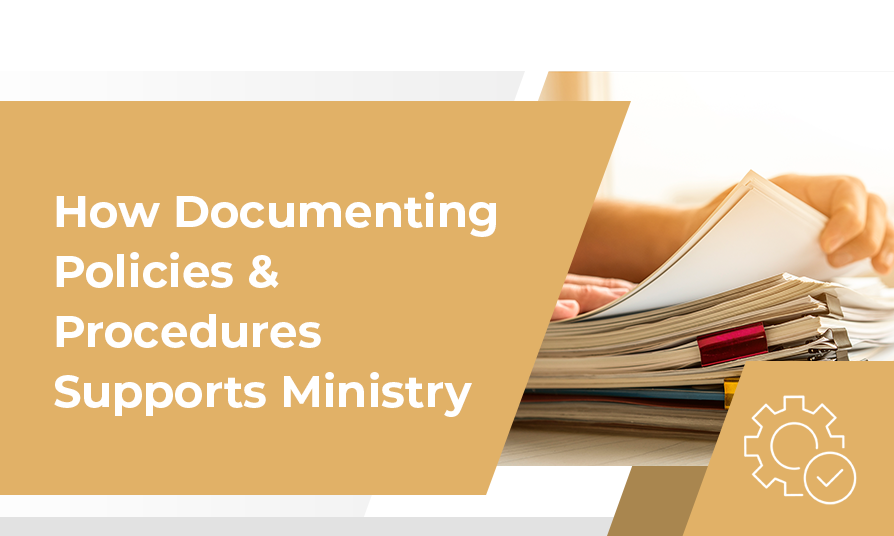How Documenting Policies & Procedures Supports Ministry
When it comes to ministry, most people don’t think of employee handbooks, meeting agendas, or policy and procedure documentation. That makes sense – after all, we gather as congregations to grow in our faith and to share it with others. However, since we do have staff and resources to steward, we need to pay careful …
How Documenting Policies & Procedures Supports Ministry Read More »

